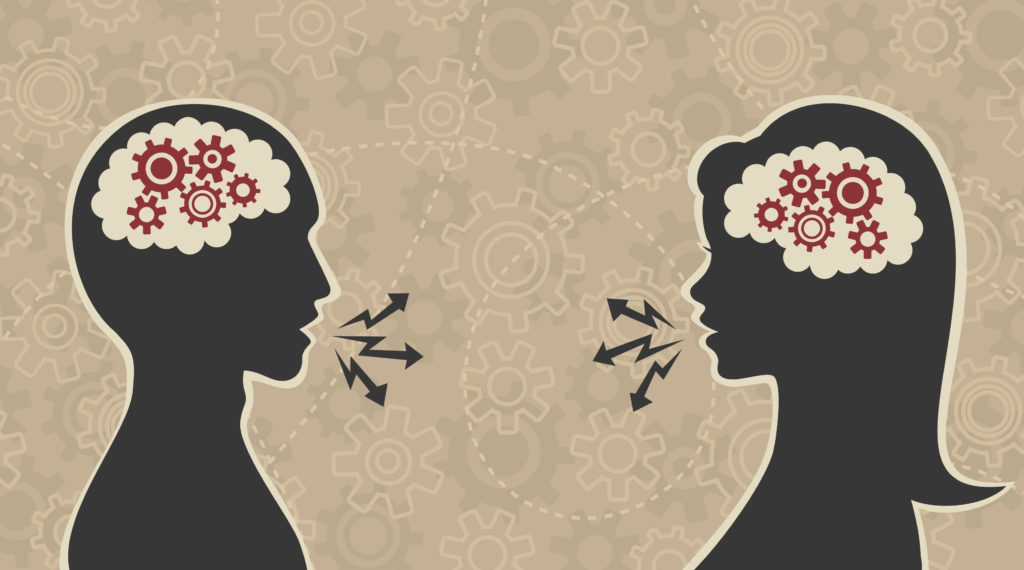Learning a new language is fun and a natural instinct. Children have an inherent trait to learn a language to be able to communicate. Learning new languages does not only open more avenues for us, but makes us smarter as well. In this article we will examine the science of language learning.
The science of language learning?
Children have a natural instinct to learn a new language. But as we age, it becomes more and more difficult for our brain to accept a new language. As children we learn to think, to communicate, and naturally pick up the rules of grammar of our mother tongue. Nobody teaches us our native language, it is just everyday exposure to it that helps us learn it.
The mother tongue serves as a foundation base for other languages that we learn in life. The human brain has common linguistic constraints, irrespective of what we’ve learnt.
Does age matter?
Unlike children, adults are at a disadvantage when it comes to learning a second language. The reason behind that is the fact that as we age, our brain’s plasticity is reduced.
Another theory reveals that it could be because adults learn a foreign language by focussing harder on the nuances rather than learning in the way a child does. Robert Bley-Vroman explains in “Linguistic Perspective On Second Language Acquisition” that adults approach learning a foreign language as a problem-solving process and not as a communication method.
This implies that even though adults progress through the early stages of learning a new language faster, people who are exposed to foreign languages early in life generally achieve a higher proficiency than those who begin as adults.
However, all hope should never be lost. Another study revealed that sometimes adults achieve the same proficiency at a foreign language like the native speakers.
What do studies say?
A Swedish MRI study concluded that learning a foreign languages has visible effects on the brain. It was found that the areas of the brain linked to language learning grew.
Kara Morgan-Short, a professor at the University of Illinois in Chicago, used electrophysiology to explain the inner workings of the brain. In the experiment, she taught an artificial language to a group of people. The first group learnt the artificial second language through explanations of the rules of the language and the second group learnt via being immersed in the language, much like how we learnt our mother tongue as a child. While both the groups learnt, she found out that it was the immersed study group whose brain processes were similar to theones of native speakers. Morgan-Short commented, “This brain-based research tells us not only that some adults can learn through immersion, like children, but might enable us to match individual adult learners with the optimal learning contexts for them.”
Another Canadian piece of research in the science of language learning shows that the onset of Alzheimer’s and dementia are diagnosed later for bilinguals than monolinguals, emphasising that learning a foreign language keeps your brain healthy and active.

How to improve your language learning
If you wish to learn a foreign language, it’s never too late. Try the following methods to improve upon your language learning process based on the science of language learning:
-
Spaced repetition
A time-tested memory technique which will help you keep what you’ve learnt strong in your mind. You need to review each word that you’ve learnt at intervals. In the beginning these intervals will be smaller, growing the spaced intervals as you learn to remember the words well.
Here is the graph that can help in you in planning your spaced intervals:

- Study before sleeping
The human mind requires rest and sleep. It is the way how our body and brain relax. Sleep also allows our brain to clear out on the “inbox”. Sleeping after practising a few words will make you remember them better and spaced repetition will help strengthen the connection so that you can recall them quickly.
- Constantly consume content
Although learning a foreign language is actually about learning the workings of a language, a study revealed that people retain more when they are taught content in a foreign language rather than the language itself. Once you have understood the basics of a new language, add content to it. You can read a book in the language that you’ve learnt, speak with native speakers or write letters in the foreign language to further enhance the skill.
- Practise
There is no better way to learn a foreign language than to practise, practise and practise. Revising a little every day is more effective than cramming it all out on weekends. Since the brain has limited storage capacity, practising before sleeping and spaced repetition will be beneficial.
Learning new languages has its own benefits. Regardless of when you start learning, they will make you venture into a different word. The mental effects of learning a new language combined with the opportunity to learn about a new culture is thrilling. As they say, “Learning a new language is not only about learning different words for the same thing, but learning another way to think about the same things.” This is the science of language learning in a nutshell.
Liked this post? Check out these relevant links!
Bilingual Children Phenomena Revealed
Teachers or Robots: Do I Still Need a Language Tutor?
Also published on Medium.



